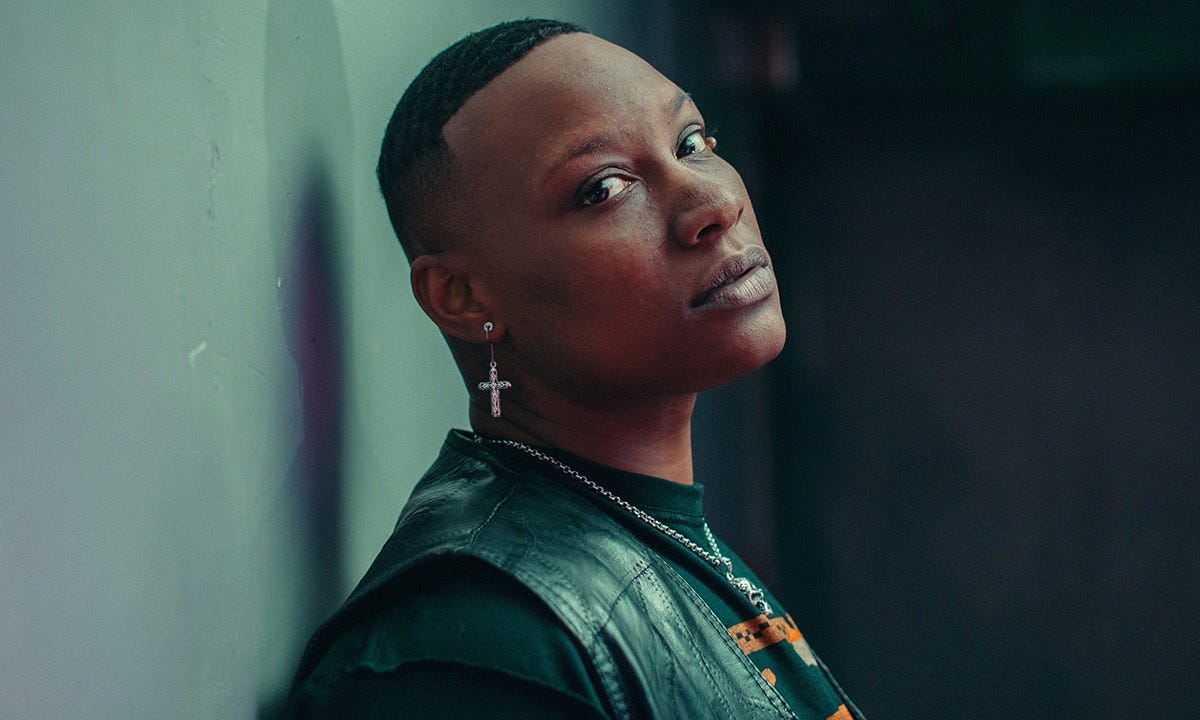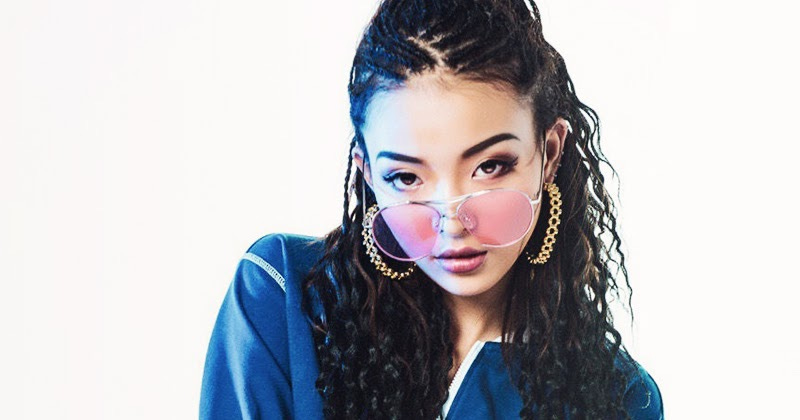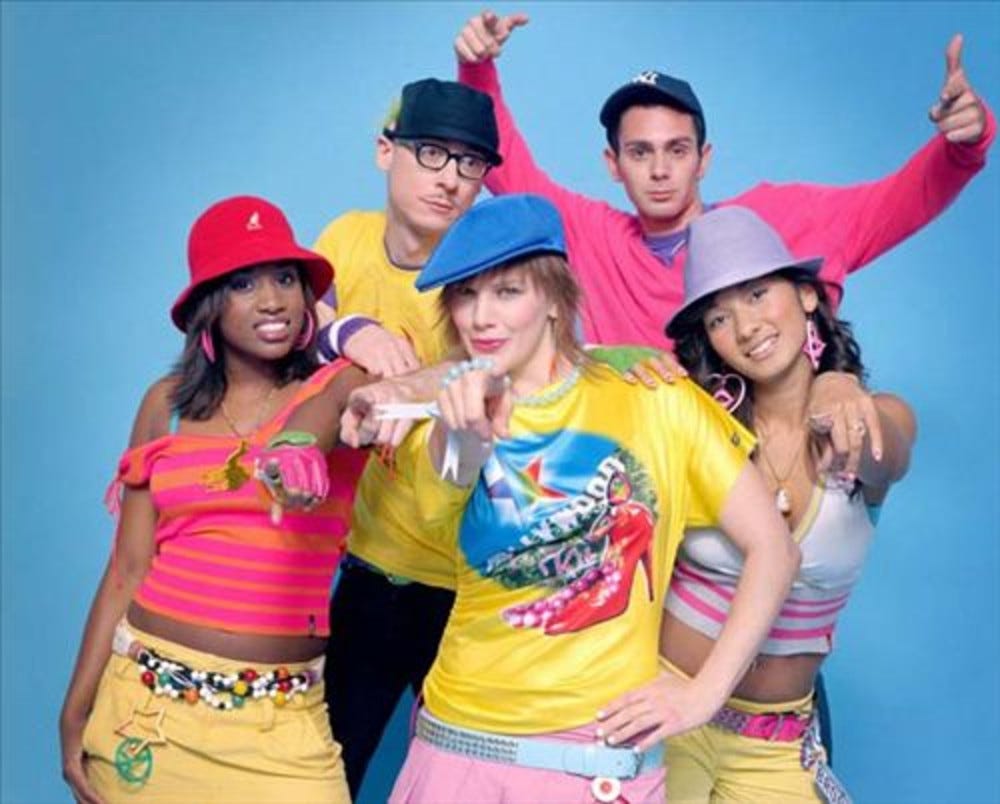Don't Dodge Dodgr, China’s Femcee Scene, and a Fannypack Throwback
Hey Femcee Fans,
My apologies for the delay, it’s been a crazy week! But check out the latest playlist and dive into some goodies below!
Artist To Know: The Last Artful Dodgr Is Anything But Safe
This past week, the rapper who goes by the (peculiar) stage name The Last Artful, Dodgr dropped her latest single called “Better Safe Than Social'', an obvious and timely reference to our current predicament. While she might be stuck indoors for now, hopefully Dodgr will be able to return to a more social career path soon, considering that right before COVID-19 hit the States she had just signed her first major record deal with Interscrope.

Born Alana Chenevert, Dodgr was born and raised in the rough parts of L.A. (her name is both a reference to the L.A. Dodgers and to dodging bullets, wrapped in a Charles Dickens pun), but now hails from Portland, Oregon, becoming one of only a handful of Portland MCs to ever sign with a major label. She’s been rapping and performing since 2011 and in 2016 gained wider recognition with the release of her single "Squadron”. For the past 5 years, Dodgr’s continued to release mixtapes, singles and EPs, but in 2019 gained major traction supporting other big artists: she penned a hit track for Anderson Paak’s Grammy-winning album Ventura, rapped with Snoop Dogg on a Dr. Dre track, and turned the party on a Mark Ronson song with Alicia Keys.
When it comes to her music, Dodgr is in a league of her own, bringing forth a new perspective and flavor to the hip-hop genre. As a queer-identifying black woman from Portland, a rare breed in and of itself, she meshes the oddball artistry of the Portland musical scene with the essence and roots of L.A. west coast rap. Her eccentric voice, though, is her true secret weapon, as it weaves through being deep, sharp, and nasal, and can seamlessly flow between rap verse and beautiful melody. Dodgr’s voice is so distinct that it becomes immediately recognizable after hearing it just once and makes anyone else on the track forgettable (I mean how do you make Alicia Keys’ voice sound basic?) After her signing, Dodgr teased that a new record is in the works set for release later this year. No exact date yet, so for now listen to some of her other dope tracks!
Global Outlook: Peeking Into China’s Female Rap Scene
While much of the world is turning its eyes away from China these days, I figured it the perfect time to swivel our attention back towards the country and look into the role women are currently playing in Chinese hip hop/rap. In general, the prevalence of rap music in China is fairly new. While the U.S. has had hip-hop on the rise since at least the 70’s, the insular China has only just seen a spike in hip hop culture the past couple years. There are likely many reasons for this, one being the fact that many believe the Chinese language is not suitable for the genre: "People said, straight up, you can't rap in Chinese...Chinese is not suitable for rap music because it's tonal”, and the other being the political landscape: "I can tell you about what we don't rap about: gangbangin', pushin' drugs, or the government, that's a good way to not continue your career (or your life)."

But in 2017, a reality competition TV show called the The Rap of China changed the game and brought hip-hop to new levels of mainstream success in the country. With billions of online views, it subsequently made several Chinese rappers into stars. Taking cues from the rest of the world, most contestants on the show are male, but Sichuanese rapper VaVa was the sole female contestant on Season 1 to crack the final four, eventually placing third to co-champions PG One and GAI. Nevertheless, VaVa’s popularity ballooned, and the 23-year-old rapper has since demonstrated better post-contest commercial value than most of her fellow contestants (search Rap Of China on YouTube and her video below is #1 most viewed).
Since then, the show aired two more seasons, in 2018 and 2019 respectively, and while no female won, many more were featured and have since been gaining prominence including the likes of Lexie Liu, Vinida, Angel Mo, Double. J, TIFA, and Zetah. While S1’s VaVa is by far still the most popular femcee in the country, each of these women bring their own flavor to the growing industry there. But like anywhere else in the world, they too are fighting the same old uphill battle, as Lexie Liu puts it: “As a female artist, we always have to take more, you know, attacks, verbal abuse. We have more pressure than male artists. Like how we behave, how we sit, how we do our makeup, how we dress, how we walk, how we talk, everything…And people are definitely gonna think that female rappers are weaker than male rappers. …I’m just gonna do my best in here, and try to prove that females can do the same thing.” So with that, go check out and support some of these trailblazers above and below!
Throw It Back: Fannypack’s Notorious Cameltoe
Over the decades, many an artist or music group has fallen into the industry graveyard of “One-Hit-Wonders”. While there are all kinds of reasons for why that transpires, once in a while that reason is because the group’s one hit was so outlandish, hilarious and out of left-field ridiculous, that it became an overnight anomaly sensation, never to be matched again. Think for example, of Los Del Rio’s “Macarena”, or Psy’s “Gangnam Style” —suddenly they were everywhere, and then they were nowhere. Well in 2003, such was the case also for a little dirty ditty you may have forgotten about called “Cameltoe”, from a group you probably don’t recall named FannyPack.

FannyPack was a New York City-based hip hop/electronic group formed in 2002 by music producers Matt Goias and DJ “Fancy”, and comprised of vocalists Jessibel Suthiwong, Belinda Lovell, and Cart Hartwell. The group released their debut album in 2003, So Stylistic, which featured “Cameltoe”, a snappy school girl track describing the female apparel faux-pas, that immediately blew up and was number one on Carson Daly’s Total Request Live radio show for five consecutive weeks. Prior to this song, it seems the word “cameltoe” was relatively unused and unknown— it may have origins in the 12th century, when a man traveling the desert noticed the striking similarity between his animal and the crease created by the labia pressing against overly constrictive clothing. It was also involved once in a sketch on Conan O’Brien, but not until FannyPack came along did “cameltoe” become a household name for the millennial age.
After the success of “Cameltoe” though, it seems that FannyPack was deemed a novelty act. Their second single from the album “Hey Mami” had moderate success, and the group released a second album in 2005 which had one more single with even less success. Amazingly, they did manage to hang around long enough to open up for Madonna’s “Confessions Tour”, but in 2007 the group disbanded with each member going off to pursue other projects. FannyPack may not have lasted long, but the group made its cultural mark; ever since 2003, teenagers have used the word “cameltoe” to point and laugh, leaving no one’s crotch safe. Revisit your teenage trauma above and check out some other FannyPack tracks below!



